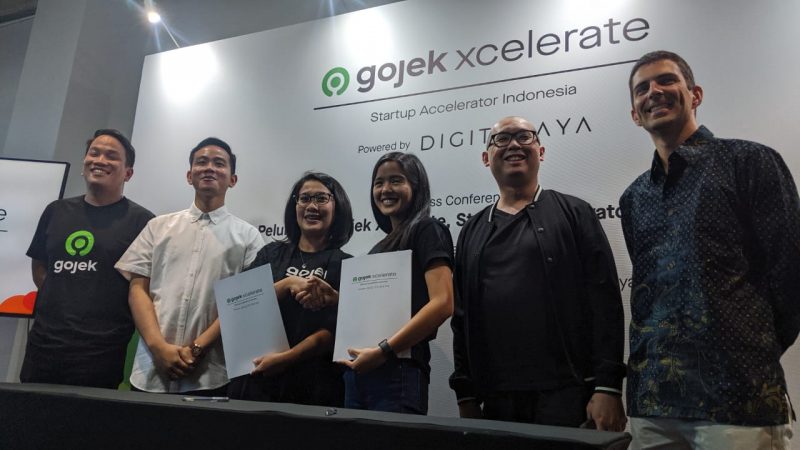Gojek, the first Indonesian unicorn superapp company that is now a decacorn company with a valuation of over US$10 billion, welcomed its third batch of startups that were chosen from the local retail sector for the third iteration of its Gojek Xcelerate startup acceleration program.
Aimed at fostering more unicorns among Indonesia’s promising startups to create a more lasting social impact, the accelerator program is done in collaboration with world-class startup accelerator Digitaraya, a startup accelerator that is also aimed at growing Indonesia’s startup ecosystem.
Besides Digitaraya, the nine startups that were selected for the latest edition of the accelerator program can also leverage the experience and knowledge of leading experts from UBS Bank, Google, and McKinsey.
According to the unicorn company Gojek, the latest batch of startups were chosen based on the fact that consumer tastes and behavior are rapidly evolving, as consumers increasingly attempt to find more ways and means of purchasing services and products that can afford them more convenience and speed.
The Gojek Xcelerate program will help these promising local retail startups to learn how to adapt and thrive in a competitive environment and keep pace with consumer tastes and behavior that are constantly evolving while enabling them to leverage on Gojek’s vast network of merchants, investors, and users.
The third batch of local startups include:
- Pijak Bumi, a sustainable fashion brand startup founded in 2016 that sells sustainable and eco-friendly footwear through its website. The startup is known for using vegetable-tanned leather as the material of choice for making their shoes.
- KIddo, a startup that aims to bring together parents and family activity service providers via its ticketing platform for playing, learning, vacationing and other family-oriented activities.
- Gigel, a startup that provides an online platform for parents to rent out various kinds of equipment for babies, such as bathtubs, strollers, baby beds, car seats, and toys. They believe that it makes more economic sense to rent these items as many of them have a short shelf life and can be quite expensive.
- Callista, a startup that provides specially formulated skincare products that are tailored specifically for each individual consumer’s needs.
- Heiden Heritage, which was established in 2016 with the aim of showcasing the skills and expertise of Indonesia’s craftsmen in making shoes and footwear.
- Sugar Technology, a tech startup that aims to infuse technology into everyday lifestyle products. Some of the products that it offers include smart fingerprint padlocks, smart backpacks, smart tumblers and smart luggage suitcases.
- Meyerfood, a poultry supplier startup that introduced Indonesia’s first chicken-focused app that makes it easier for consumers, restaurants, and caterers to get quality chicken meat.
- Etanee, a digital supply chain platform that connects farmers, fishermen, and suppliers to distribution channels such as wholesalers, traders and retail merchants, which are all connected with end consumers.
- Mad for Makeup, a startup that makes and sells a wide range of beauty and cosmetic products. It claims itself to be a rebel beauty company that believes beauty is a right, and sells revolutionary cosmetic products at affordable and empowering prices.
The Indonesian unicorn Gojek hopes that these nine promising retail startups will take the opportunity afforded by its Gojek Xcelerate program to fine-tune their approach in analyzing consumer behavior to come up with appropriate solutions for overcoming challenges such as consumer trust and market acceptance. The unicorn company also emphasized that it is vital for the startups to maintain sustainability even as they seek to accelerate their growth.






Leave a Reply